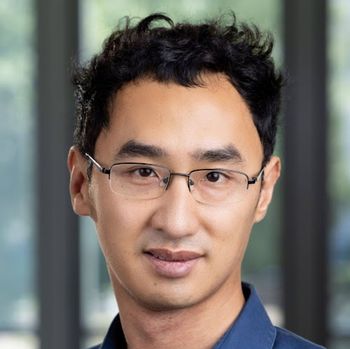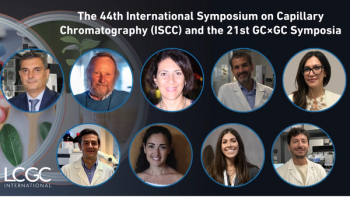
- LCGC North America-02-01-2017
- Volume 35
- Issue 2
LCGC’s New “Go-To” Guy
John Dolan’s final LCGC column will appear in October. We are sad to see him go! Fortunately, we have just the person to follow in his footsteps: Dwight Stoll.
When you are carrying out chromatographic separations, challenges and questions of all sorts arise. Why are my peaks tailing? What is that ghost peak? What is the proper way to use an internal standard? When you have doubts like those, you need help. You might turn to the “go-to” person in your lab-the person who has been there for 30 years, has run all kinds of samples, and understands the inner workings of the instrumentation and columns. But what if you don’t have a person like that? Indeed, many labs haven’t had such a person in a long time. In these situations, you turn to your virtual go-to guy at LCGC: John Dolan.
During his three decades writing our “LC Troubleshooting” column, John has been helping readers resolve a wide range of challenges. At the same time, he has been explaining the mechanisms underlying the solutions, to help readers improve their ability to solve problems on their own. In his recent “How Does It Work?” series, for example, he has explained pumps, mixing and degassing, autosamplers, and different types of detectors. He has been a chromatography hero for analytical chemists around the world.
Eventually, though, even heroes need to retire, and that includes John (even if he does still run five miles a day). John’s final LCGC column will appear in October. We are sad to see him go! Fortunately, we have just the person to follow in his footsteps: Dwight Stoll. Like John, Dwight has an intense knowledge of the inner workings of the liquid chromatograph. He started gaining practical industrial experience early, by working at ZirChrom Separations before embarking on his graduate studies. And while completing his Ph.D. at the University of Minnesota under Pete Carr (a chromatography icon himself), Dwight got additional hands-on experience with instrumentation by earning a little money on the side repairing liquid chromatography (LC) equipment. “Practical problems are close to his heart,” notes John.
Dwight also has a wonderful breadth of knowledge about stationary phases. Since 2012, he has been responsible for measuring the characteristics of new LC column chemistries to keep a USP database of nearly 700 reversed-phase columns up to date.
And although Dwight is young-it was only in 2011 that he won the LCGC Emerging Leader in Chromatography Award-he has already made quite a name for himself in the field of separation science, particularly in his primary area of focus: developing rapid multidimensional LC for both targeted and untargeted analysis. Active projects in his laboratory touch on most aspects of multi-dimensional separation methodologies, including optimizing isocratic and gradient-elution high performance liquid chromatography (HPLC), characterizing selectivity in reversed-phase HPLC, instrument development, and applications in biopharmaceutical analysis. He has already published 49 peer-reviewed publications and two book chapters (with one more coming out soon), and is a named coinventor on four patents. He has authored or coauthored over 90 conference presentations and has taught numerous short courses.
And even though Dwight is well known for his vibrant research program, he spends much of his time teaching chemistry and analytical chemistry-primarily quantitative and instrumental analysis courses-to undergraduate students at Gustavus Adolphus College, where he is a tenured professor. So like John, he knows how to explain complex concepts clearly.
All of this background and expertise make us very excited that Dwight has agreed to come on board. You can start to get to know Dwight with his guest column in this issue, which is a wonderful tutorial in filters and filtration-an issue underlying many problems in LC. As John says, “Dwight writes with clarity and simplicity, and he has a very practical approach: He knows the theory, but also knows that it doesn’t always match practice.”
In other words, what you will immediately see is that your LC troubleshooting problems remain in good hands. So please join me in welcoming Dwight aboard as your new go-to guy for LC troubleshooting!
Articles in this issue
almost 9 years ago
Filters and Filtration in Liquid Chromatography—What To Doalmost 9 years ago
Advantages of Using Nitrogen in Capillary GCalmost 9 years ago
Identifying and Discovering Marine Lipid Biomarkers Using LOBSTAHSalmost 9 years ago
Going Through Phasesalmost 9 years ago
The 2017 LCGC Awardsalmost 9 years ago
Vol 35 No 2 LCGC North America February 2017 Regular Issue PDFNewsletter
Join the global community of analytical scientists who trust LCGC for insights on the latest techniques, trends, and expert solutions in chromatography.




